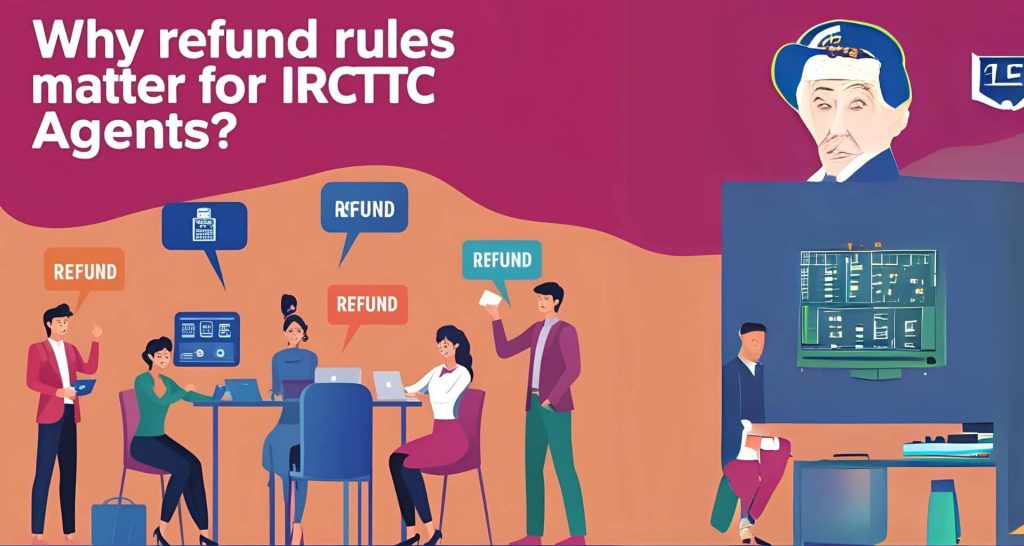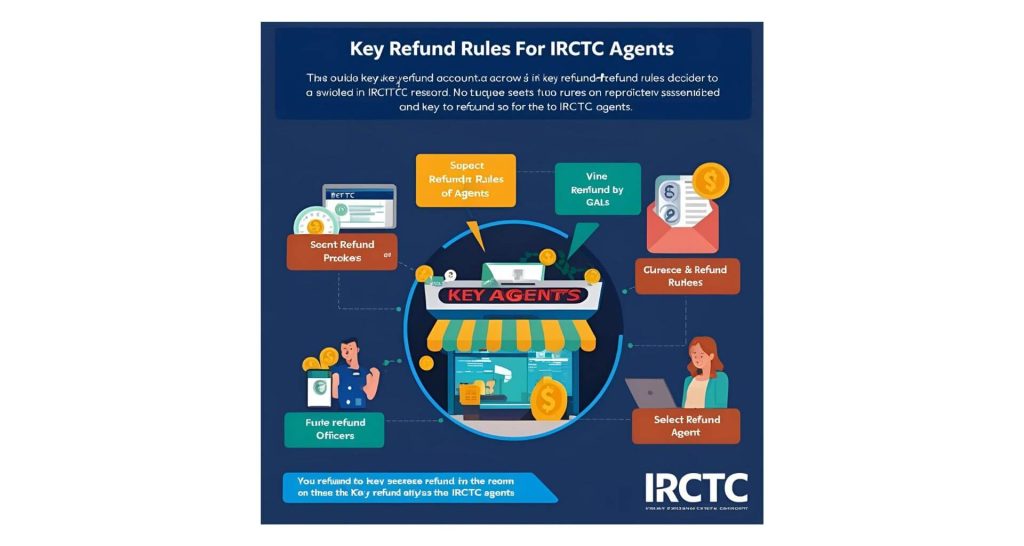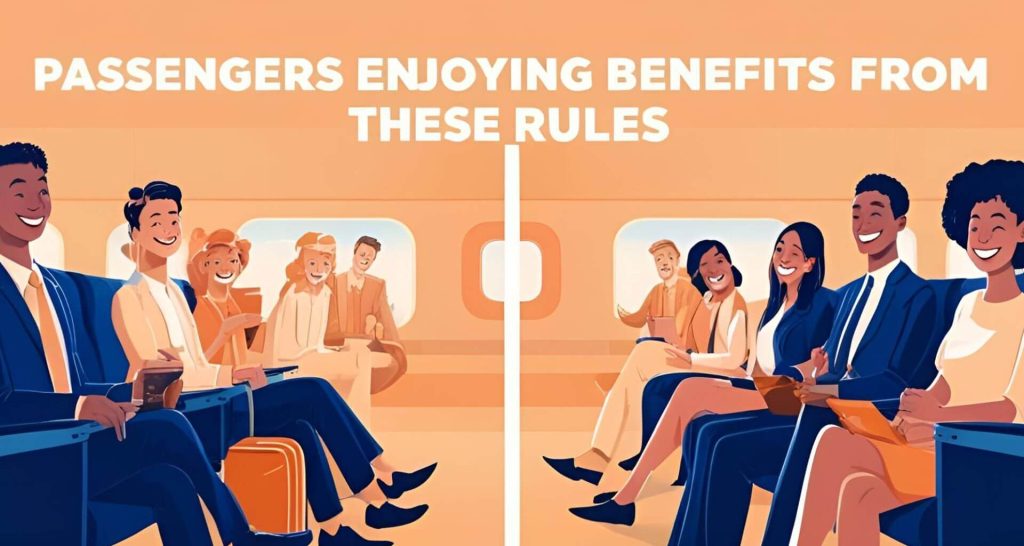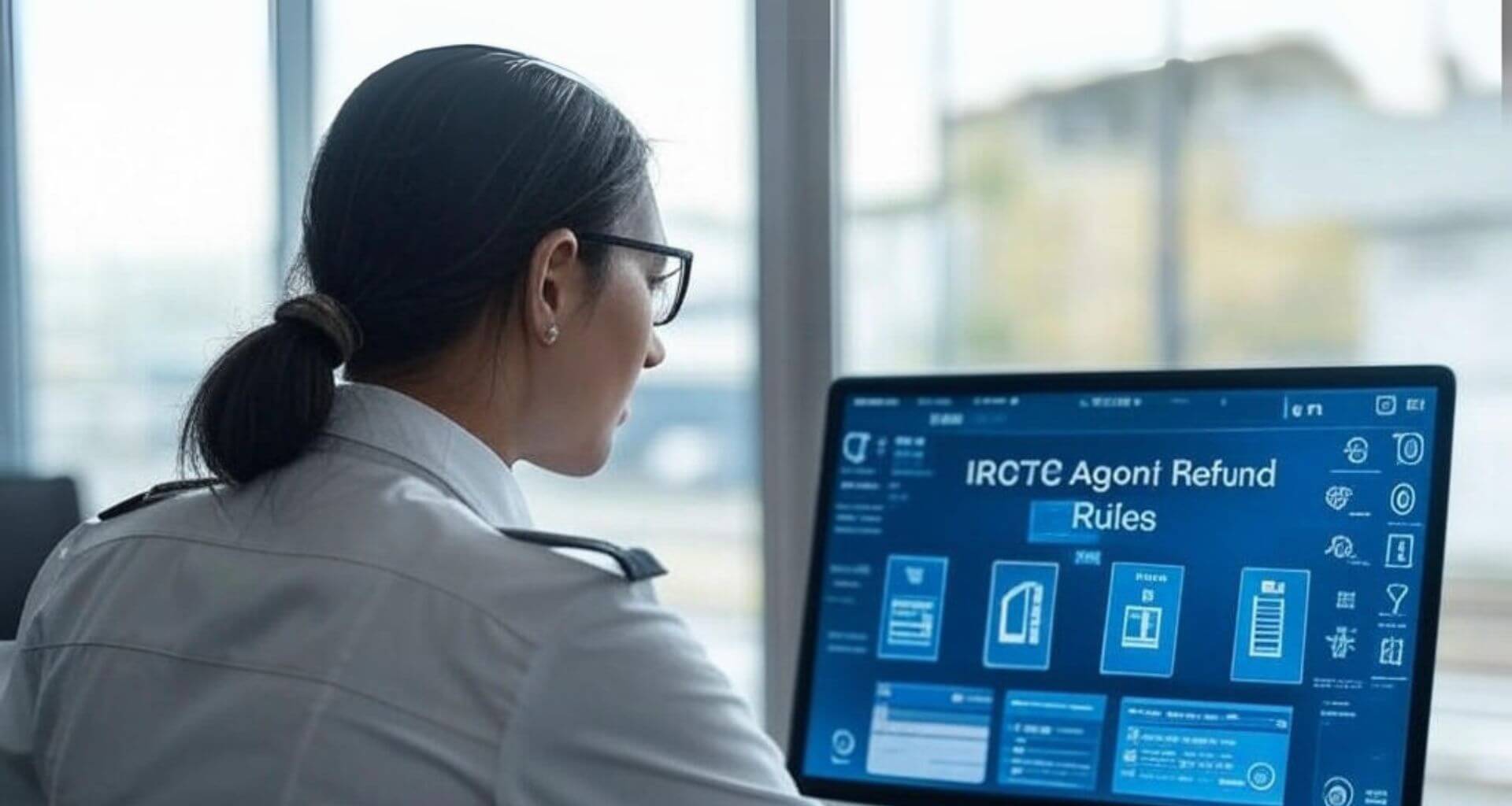The Indian Railway Catering and Tourism Corporation (IRCTC) is the backbone of online train ticket booking in India, offering a seamless platform for millions of passengers to plan their journeys. For IRCTC agents—whether operating under B2B, B2C, or other schemes—understanding the refund rules is crucial to providing excellent service to customers while managing their operations efficiently. The official IRCTC refund rules for agents, as outlined in the document from IRCTC, provide clear guidelines on cancellations, refund processing, and applicable charges. In this blog, we’ll break down these rules, highlight key points, and offer practical tips for agents to navigate the refund process effectively.

Why Refund Rules Matter for IRCTC Agents
IRCTC agents play a pivotal role in facilitating train ticket bookings across India, often handling hundreds of transactions daily. Whether you’re a small travel agency or a large B2B service provider, cancellations are inevitable—passengers change plans, trains get delayed, or unforeseen circumstances arise. Knowing the refund rules ensures that agents can:
- Provide Accurate Information: Agents can inform passengers about cancellation charges and refund timelines, setting clear expectations.
- Minimize Financial Losses: Understanding the rules helps agents avoid unnecessary deductions or penalties.
- Maintain Customer Trust: A smooth refund process enhances customer satisfaction and builds long-term loyalty.
Let’s dive into the key aspects of IRCTC’s refund rules for agents, based on the official guidelines.

Key Refund Rules for IRCTC Agents
1. Cancellation of E-Tickets
IRCTC agents can cancel e-tickets through the IRCTC website, mobile app, or the online portal they used for booking. However, there are specific conditions:
- Online Cancellation Window: E-tickets can be cancelled online up to the time the chart is prepared for the train. Once the chart is prepared, online cancellation is not allowed, and agents must file a Ticket Deposit Receipt (TDR) for refunds.
- Partial Cancellation: For group or family tickets, partial cancellation is permitted. For example, if a family books four tickets but one member cannot travel, the agent can cancel that individual’s ticket without affecting the others.
- Tatkal and Special Tickets: Tatkal tickets and certain special quota tickets (e.g., Foreign Tourist Quota) cannot be cancelled online. These must be cancelled at a Passenger Reservation System (PRS) counter, and refunds are subject to specific conditions.
2. Cancellation Charges
Cancellation charges vary based on the class of travel and the time of cancellation relative to the train’s scheduled departure. Here’s a breakdown:
- More than 48 Hours Before Departure:
- Flat charges apply per passenger:
- AC First Class/Executive Class: ₹240
- AC 2 Tier/First Class: ₹200
- AC 3 Tier/AC Chair Car/AC 3 Economy: ₹180
- Sleeper Class: ₹120
- Second Class: ₹60
- Flat charges apply per passenger:
- Between 48 and 12 Hours Before Departure:
- 25% of the fare (subject to the minimum flat charges above).
- Between 12 and 4 Hours Before Departure:
- 50% of the fare (subject to the minimum flat charges).
- Less than 4 Hours Before Departure or After Chart Preparation:
- No refund is applicable, except in special cases where a TDR can be filed (e.g., train cancellation, late running, or passenger not traveling).
- Clerkage Charge: A clerkage charge of ₹60 per passenger is deducted for all cancellations, regardless of the timing.
3. Special Cases for Refunds
IRCTC provides provisions for refunds in certain scenarios, even after the chart is prepared:
- Train Cancelled by Railways: If the train is cancelled, agents can file a TDR, and passengers are eligible for a full refund, including the clerkage charge.
- Train Running Late by More Than 3 Hours: If the train is delayed by more than 3 hours and the passenger chooses not to travel, a full refund can be claimed by filing a TDR within 72 hours of the scheduled departure.
- Passenger Not Traveling in Re-Allotted Lower Class: If a passenger is re-allotted to a lower class (e.g., from AC 2 Tier to Sleeper) and chooses not to travel, they can cancel the ticket up to the second chart preparation and receive a full refund. Alternatively, they can file a TDR within 3 hours after the train’s actual departure.
- Non-Provision of Amenities in AC Coaches: If amenities like bedding are not provided in AC coaches (e.g., on special trains without bedroll service), passengers can file a TDR for a partial refund.
4. Filing a Ticket Deposit Receipt (TDR)
When online cancellation isn’t possible (e.g., after chart preparation), agents must file a TDR to process refunds:
- TDR Filing Window:
- For train cancellation: Within 30 days from the scheduled departure.
- For train delays (>3 hours): Within 72 hours from the scheduled departure.
- For non-provision of amenities: Within 72 hours from the actual departure.
- Process:
- Log in to the IRCTC agent portal.
- Navigate to the TDR filing section, select the PNR, and specify the reason for the refund (e.g., train cancelled, passenger not traveled).
- Submit the TDR request. The refund will be processed after verification by the railway authorities.
- Refund Timeline: Refunds via TDR can take 60–90 days to process, depending on the railway zone and the reason for the refund.
5. No Refund Scenarios
Certain situations do not qualify for refunds, and agents should inform passengers accordingly:
- Tatkal Tickets: No refunds are available for Tatkal tickets, except in cases of train cancellation or delay (>3 hours).
- Tickets Booked Through Unauthorized Agents: Tickets booked via unauthorized agents or scripting tools may be cancelled without a refund.
- After Departure Without TDR: If a passenger misses the train and doesn’t file a TDR within the specified window, no refund is applicable.
6. Refund Processing for Agents
- Rolling Deposit Scheme (RDS) Wallet: For agents using the RDS wallet, refunds are credited back to the wallet after deducting cancellation charges. This ensures agents can continue booking tickets without immediate cash flow issues.
- Direct Refunds: If the ticket was booked using a payment gateway (e.g., credit/debit card), the refund (minus charges) is credited back to the passenger’s account, not the agent’s wallet.
- Verification: Agents must provide a valid mobile number and email ID registered with the ticket for refund processing. IRCTC sends SMS alerts to passengers to confirm cancellations and refunds.

Practical Tips for IRCTC Agents
- Educate Passengers:
- Clearly explain the cancellation charges and refund timelines to passengers at the time of booking. For example, inform them that cancelling a Sleeper Class ticket 48 hours before departure incurs a ₹120 charge, but waiting until 4 hours before departure results in a 50% deduction.
- Highlight that Tatkal tickets are non-refundable unless the train is cancelled or significantly delayed.
- Monitor PNR Status:
- Encourage passengers to check their PNR status after the first chart preparation. IRCTC often sends SMS alerts about train delays or re-allotments, which can affect refund eligibility.
- Use the Correct Contact Details:
- Ensure the passenger’s mobile number is correct when booking. IRCTC uses this number to send timely alerts, which are crucial for TDR filing and refund processing.
- File TDRs Promptly:
- Don’t delay filing TDRs, as missing the deadline (e.g., 72 hours for train delays) will result in no refund. Keep a record of TDR submissions for follow-up.
- Beware of Fraud:
- IRCTC warns agents to avoid unauthorized platforms or scripting tools for booking tickets, as these can lead to cancellations without refunds. Always use the official IRCTC agent portal or app.
- Leverage RDS Wallet:
- The RDS wallet system allows agents to manage refunds efficiently. Ensure your wallet is adequately funded to handle cancellations without disrupting your operations.

How Passengers Can Benefit from These Rules
For passengers booking through IRCTC agents, understanding these refund rules can help manage expectations:
- Plan Cancellations Early: Cancel more than 48 hours before departure to minimize charges. For example, cancelling an AC 3 Tier ticket early costs ₹180, but waiting until 12 hours before departure could cost 25% of the fare.
- Check Train Status: If a train is running late by more than 3 hours, you can opt not to travel and claim a full refund by asking your agent to file a TDR.
- Know Your Rights: If amenities like bedding are not provided in an AC coach, you’re entitled to a partial refund—don’t hesitate to request your agent to file a TDR.
Final Thoughts
The IRCTC refund rules for agents are designed to balance operational efficiency with passenger convenience, ensuring a fair process for cancellations and refunds. For agents, mastering these rules is key to providing top-notch service while avoiding financial pitfalls. By educating passengers, monitoring train statuses, and filing TDRs promptly, agents can streamline the refund process and build trust with their clients.
For passengers, these rules highlight the importance of planning ahead and staying informed about train schedules. Whether you’re an agent or a traveler, understanding the ins and outs of IRCTC’s refund policies can make your train travel experience smoother and more hassle-free. So, the next time you book a train ticket through an IRCTC agent, rest assured that there’s a clear process in place to handle cancellations—making your journey as stress-free as the scenic views from your train window!
